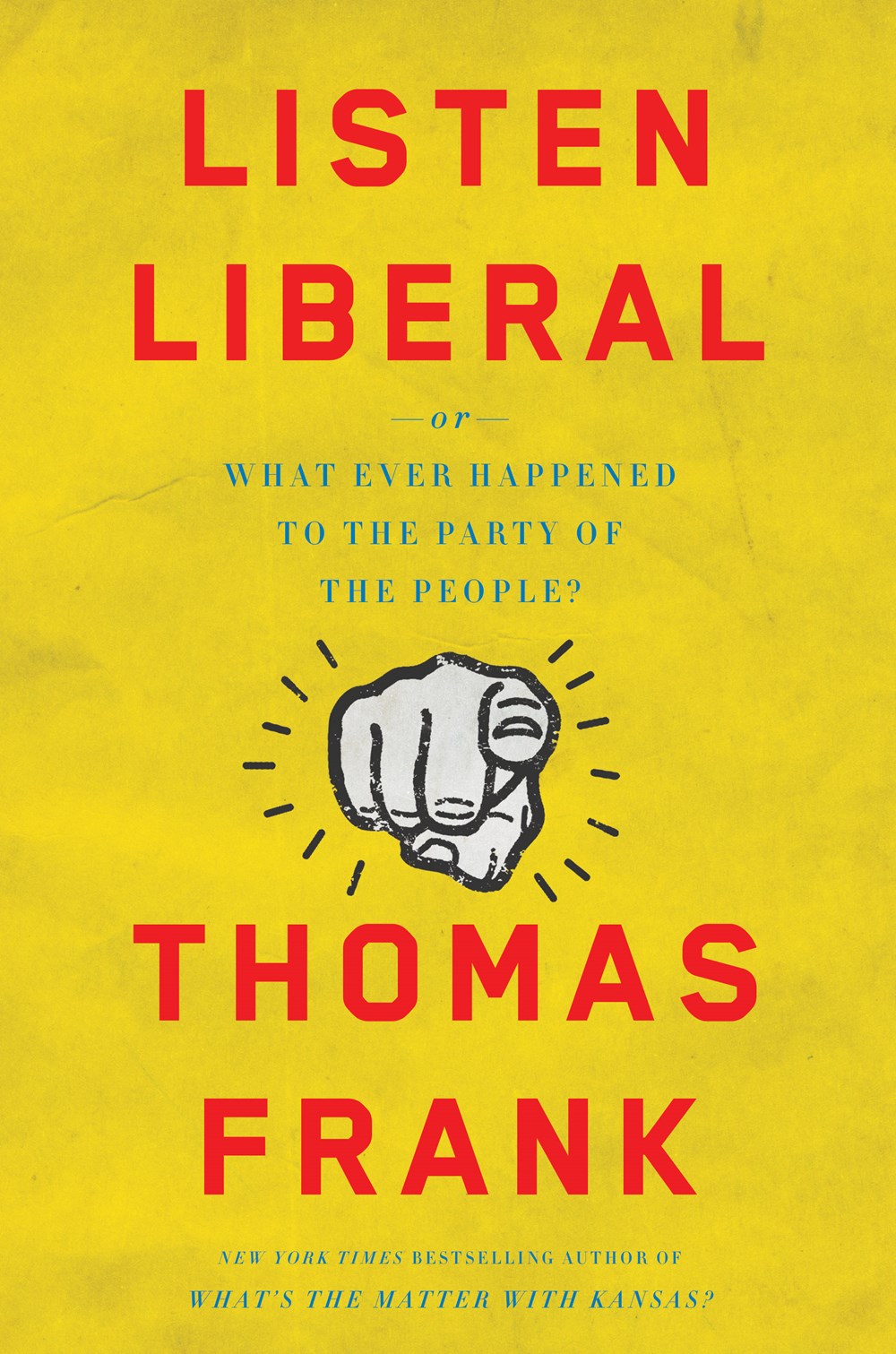Listen, Liberal!
(2016)
I decided to take on the second biggest political question of them all: Why has American liberalism been so singularly unsuccessful at halting the deterioration of the middle class?
The result was Listen, Liberal: a history of American liberalism that seeks to explain the Democratic Party’s weird indifference to out-of-control inequality. The answer wasn’t lack of opportunity: Democrats have occupied the White House for sixteen of the last twenty-seven years, and yet the decline of middle-class power has only accelerated. Wall Street got its bailouts, wages still went nowhere, and the free-trade deals just kept coming.
My answer was that the Democrats aren’t who we think they are. Once, perhaps, they were the wide-awake guardians of blue-collar prosperity, but today they understand themselves differently. They are a party of the professional class—a.k.a. the “learning class” or the “creative class”—and they are infatuated with the idea of a post-ideological society in which competence is all that matters. The prosperous white-collar industries whose worldview the Dems reflect so faithfully don’t really have a problem with inequality. Indeed, in the rich suburbs and affluent college towns that are today the party’s stronghold, it is taken for granted that wealth is the rightful reward of a good education.
Like Kansas, this book proved highly controversial and also weirdly prophetic: The 2016 Democratic candidate, Hillary Clinton, campaigned as the most competent candidate of all time and openly identified with the successful; she did remarkably well among the affluent. Meanwhile the Republican, Donald Trump, posed preposterously as a defender of the plain-speaking, long-suffering working class and won the election thanks to victories in the deindustrialized zones of the Midwest.
The book cleared the way for countless attacks on the Democrats from the left and was widely reviewed. The Washington Post named it the “most prescient” book of the year; the New York Times put it on its list of “6 Books to Help Understand Trump’s Win”; Politico named me one of their fifty “thinkers, doers and visionaries transforming American politics in 2016.”
After the vote-shock of November 2016, I appeared on TV in countries around the world to explain the results and went on lecture tours of Australia, Scandinavia, the UK, and France, where book was translated as Pourquoi les Riches Votent a Gauche, the sequel to my earlier work Pourquoi les Pauvres Votent a Droit (i.e., What’s the Matter With Kansas?)
Buy Online


